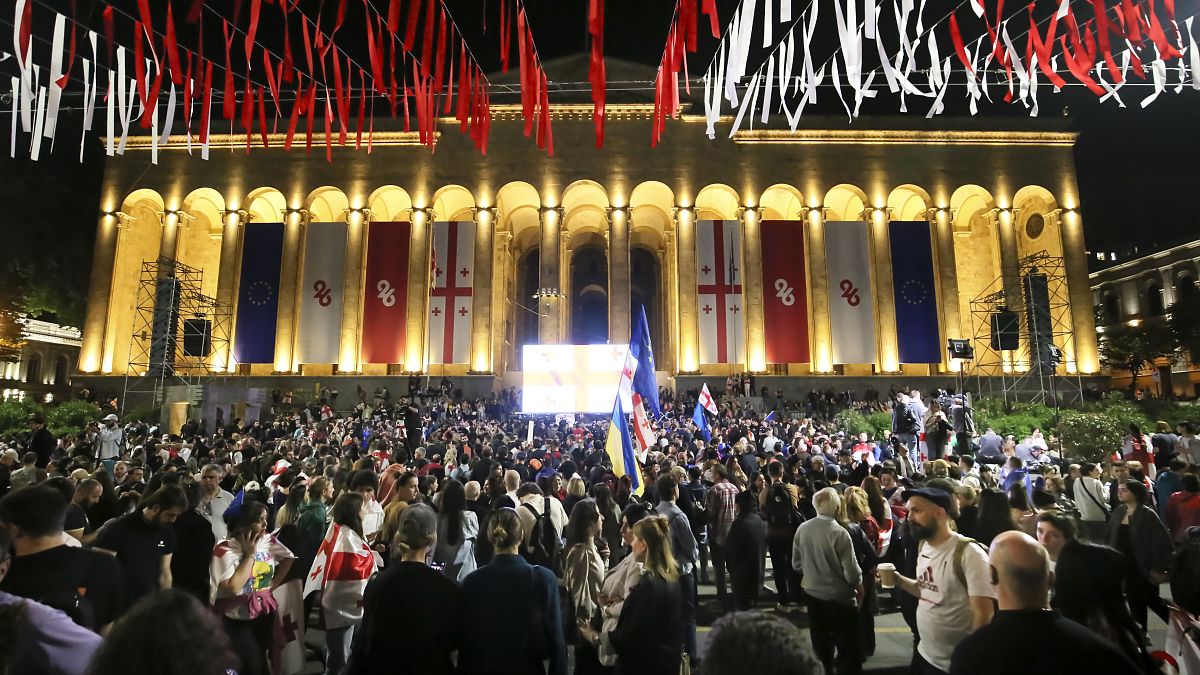In Georgia, the controversial “foreign agents” bill has caused widespread protests and a presidential veto, with concerns raised about media freedom and the country’s aspirations to join the European Union. The ruling Georgian Dream party has defended the law, which requires media outlets and NGOs to register as “pursuing the interests of a foreign power” if a significant portion of their funding comes from abroad. Critics argue that the bill aims to silence critical voices and restrict freedom of speech ahead of the upcoming parliamentary elections.
President Salome Zourabichvili vetoed the bill, accusing it of endangering Georgia’s future and hindering its path towards becoming part of the free and democratic world. However, the ruling party repealed her veto in a parliamentary vote, leading to the law’s enactment. Prime Minister Irakli Kobakhidze dismissed criticisms of the bill as “unnecessary emotions” and urged pragmatism following its adoption.
Opponents have likened the legislation to measures enforced by the Kremlin in Russia to suppress independent media and activists. They suggest that the bill may be influenced by Moscow in an attempt to hinder Georgia’s further integration with the EU and the West. The opposition United National Movement (UNM) reported an attack on its central offices in Tbilisi by masked men, prompting an investigation by the Interior Ministry.
The legislation has sparked renewed demonstrations in Georgia, with clashes between protesters and police who deployed tear gas and water cannons. The European Union has expressed concerns about the law’s impact on Georgia’s EU progress, despite granting the country candidate status last December. US Secretary of State Antony Blinken imposed travel sanctions on Georgian officials responsible for undermining democracy, urging the government to realign with its democratic aspirations.
Critics of the bill argue that it compromises Georgia’s EU membership path and raises questions about the country’s relationship with Russia. The ruling Georgian Dream party, founded by billionaire and former Prime Minister Bidzina Ivanishvili, has faced scrutiny due to Ivanishvili’s ties to Russia. Georgia’s relations with Russia have been strained since its independence from the Soviet Union, particularly following a brief war in 2008 and the recognition of separatist regions by Moscow.
Despite the controversy surrounding the “foreign agents” bill, the Georgian government remains committed to implementing the law in order to protect the country from external interference. Civil society groups in Georgia have announced plans to challenge the legislation in the constitutional court, highlighting ongoing concerns about media freedom and democratic principles in the country. The future of Georgia’s relationship with the EU and the West remains uncertain as the government faces pressure from both domestic and international critics.









